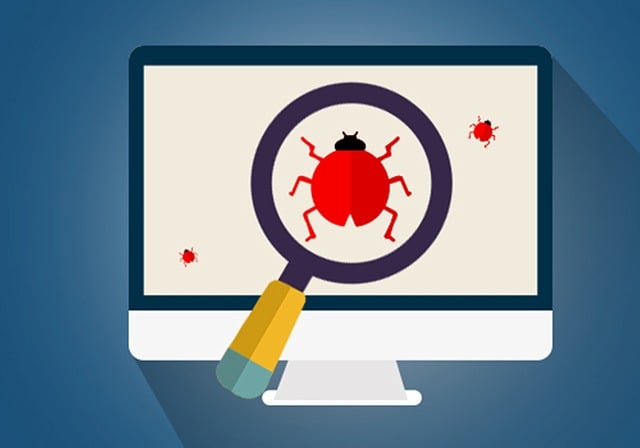Third-party heavy metals testing is crucial in ensuring the safety and quality of CBD products. Independent labs use advanced techniques like ICP-MS or AAS to detect trace amounts of harmful contaminants like lead, mercury, and arsenic that may enter the supply chain during CBD extraction. This testing protects consumer health, builds trust, aligns with regulations, and safeguards brand reputation, making it an essential step for CBD businesses in a competitive market. Prioritizing accurate, reliable third-party heavy metals testing ensures products meet stringent standards, appealing to health-conscious consumers and regulatory bodies.
“In the world of CBD, ensuring product safety through comprehensive testing is paramount. This article delves into the significance of third-party heavy metals testing—a crucial aspect often overlooked but vital for maintaining quality and consumer trust. Independent labs play a pivotal role in analyzing CBD products for potentially harmful heavy metals, safeguarding consumers, and upholding brand reputation. We explore the process, key regulations, and essential considerations for businesses navigating this critical step in product development.”
Understanding Third-Party Testing: The Role of Independent Labs

Third-party testing is an indispensable process in the CBD industry, ensuring product quality and safety. Independent labs play a pivotal role in this regard by conducting rigorous analyses on CBD products to detect any potential contaminants, including heavy metals. This objective evaluation is crucial as it verifies that CBD products meet regulatory standards and are fit for consumer use.
Heavy metals testing for CBD is a critical aspect of third-party assessment. Metals like lead, mercury, and arsenic can inadvertently enter the CBD extraction process due to various factors. These contaminants pose significant health risks, making their thorough inspection essential. Independent labs employ advanced techniques and instruments to detect even trace amounts of heavy metals, thus safeguarding consumers and maintaining the integrity of the CBD market.
Why Heavy Metals Testing is Crucial for CBD Products

In the ever-growing market of cannabidiol (CBD) products, ensuring product safety and quality is paramount. One critical aspect often overlooked is heavy metals testing for CBD. Heavy metals like lead, mercury, and arsenic are harmful contaminants that can inadvertently find their way into CBD oils, edibles, and topicals during the manufacturing process. These metals do not occur naturally in cannabis plants and their presence indicates potential environmental contamination or inadequate extraction methods.
Regular heavy metals testing for CBD products is crucial for several reasons. Firstly, it safeguards consumer health by preventing exposure to toxic substances that can have adverse effects on well-being. Secondly, it builds trust among consumers who increasingly demand transparency and purity in their wellness products. Moreover, many regulatory bodies mandate heavy metals testing as a quality control measure, making it an indispensable step in the CBD product development process.
The Process: How Third-Party Labs Conduct Metal Analysis

Third-party labs employ a rigorous process for conducting metal analysis, particularly in the domain of Heavy Metals Testing for CBD products. The procedure begins with the receipt of samples from manufacturers or distributors who seek to ensure their CBD goods meet safety standards and regulatory requirements. Samples are meticulously prepared, often involving processes like dissolution and filtration, to extract and isolate any present heavy metals. Next, advanced instrumental analysis techniques such as Inductively Coupled Plasma Mass Spectrometry (ICP-MS) or Atomic Absorption Spectroscopy (AAS) are utilized. These technologies can detect even trace amounts of heavy metals with remarkable precision.
Results are then compared against established limits and industry standards to determine whether the CBD products are safe for consumption. If any heavy metal contamination is detected, the source can be identified and addressed, leading to improvements in manufacturing processes or sourcing practices. This level of thoroughness not only guarantees product safety but also builds consumer trust, demonstrating a commitment to quality and regulatory compliance in the ever-evolving market of CBD products.
Ensuring Quality and Safety: Benefits for CBD Brand Reputation

In today’s competitive market, where consumer trust is paramount, third-party testing plays a pivotal role in ensuring the quality and safety of CBD products. This independent verification process goes beyond what in-house testing can achieve, as it provides an unbiased assessment of potential contaminants like heavy metals. Given that heavy metal exposure can have severe health implications, their rigorous testing during the manufacturing stage is indispensable for safeguarding consumer well-being.
For CBD brands, incorporating third-party Heavy Metals Testing for CBD into their quality control measures offers significant advantages. It enhances brand reputation by demonstrating a commitment to purity and safety. Consumers increasingly seek out products that are thoroughly tested and certified, which can lead to increased market share and customer loyalty. By proactively addressing these concerns, CBD brands not only protect themselves from potential legal issues but also foster trust with their clientele.
Common Heavy Metals Found in CBD and Their Potential Risks

CBD (Cannabidiol) has gained significant attention for its potential therapeutic benefits, but it’s crucial to address a less-discussed aspect: heavy metals contamination. While CBD itself is generally considered safe, trace amounts of heavy metals can coexist in the extraction process. Common heavy metals found in CBD products include lead, mercury, and arsenic, which may pose risks, especially when consumed over time. These metals can enter the plant material during cultivation, harvesting, or processing if proper precautions aren’t taken.
Heavy metals testing for CBD is essential to ensure consumer safety. Third-party labs play a vital role in this process by offering independent assessments of heavy metal content in CBD products. This rigorous testing helps identify any contamination issues early on, allowing manufacturers to take corrective actions. Ultimately, it empowers consumers to make informed choices, knowing that their preferred CBD products are safe and free from potentially harmful heavy metals.
Regulatory Compliance: Navigating Standards for CBD Product Safety

In the rapidly growing CBD industry, regulatory compliance is paramount to ensuring product safety and consumer trust. One critical aspect of this is adhering to strict standards in heavy metals testing for CBD products. Regulations vary across regions, but they all share a common goal: protecting consumers from potential contaminants that could be present in CBD oils, capsules, or edibles.
Third-party testing plays a pivotal role in achieving compliance by providing independent verification that CBD products meet these stringent standards. This includes rigorous analyses for heavy metals like lead, mercury, and arsenic, which, if detected at elevated levels, can pose significant health risks. By implementing robust quality control measures, including comprehensive heavy metals testing for CBD, manufacturers can assure regulators, consumers, and stakeholders of the safety and purity of their products.
Choosing the Right Third-Party Testing Facility for Your CBD Business

When selecting a third-party testing facility for your CBD business, it’s crucial to prioritize accuracy and reliability in results, especially when it comes to Heavy Metals Testing for CBD products. Look for laboratories that employ advanced instrumental methods like Inductively Coupled Plasma Mass Spectrometry (ICP-MS) which is known for its high sensitivity and precision in detecting trace elements, including heavy metals. Reputable facilities should also adhere to industry standards such as ISO 17025, ensuring consistent quality and competent personnel.
Consider the expertise of their analysts and their experience in handling cannabis products specifically. Some facilities offer comprehensive testing packages that go beyond heavy metals analysis, covering pesticide residues, terpenes, cannabinoids, and more. Ensure they maintain a clean room environment to prevent contamination and implement robust quality control measures at every step of the testing process. Additionally, choose a partner that provides timely turnaround without compromising accuracy, allowing your business to keep up with market demands efficiently.
